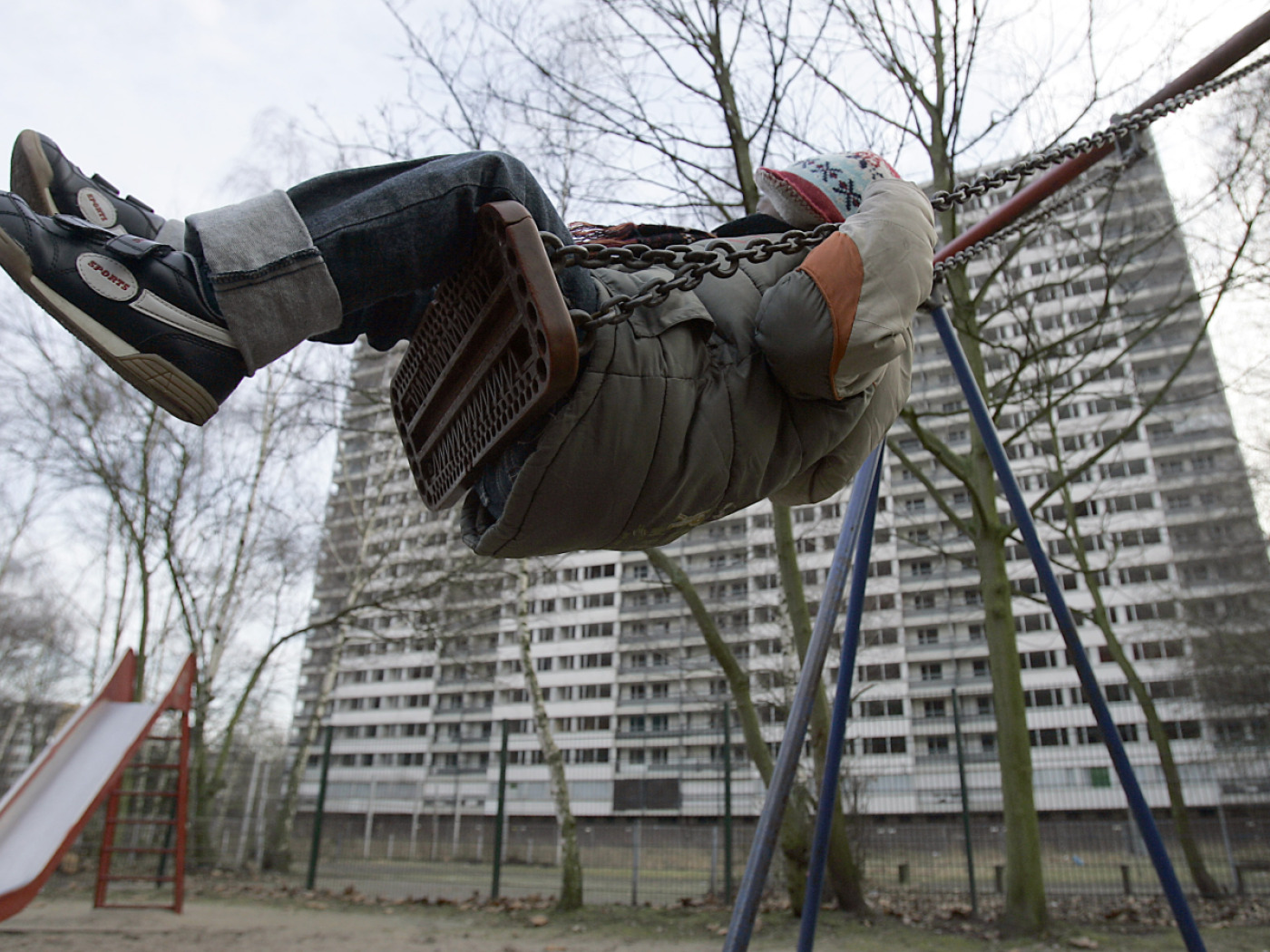
Swiss cantons step up efforts to tackle child poverty

Swiss cantons and cities have decided to strengthen social welfare services and increase basic needs provisions for children in poverty.
+ Get the most important news from Switzerland in your inbox
The social welfare rate for under-18s is 4.8%, the highest of all age groups, as announced in a joint communiqué on Thursday by the Conference of Cantonal Directors of Social Affairs, the Swiss Conference for Social Welfare and the Cities Initiative for Social Policy.
This means that around 76,000 children and young people in Switzerland were dependent on social welfare in 2022. The three bodies commissioned a study from the Bureau for Labor and Social Policy Studies in order to obtain a comprehensive picture of children on social welfare.
+ Poverty misunderstood in wealthy Switzerland
The study came to the conclusion that there is a need for action in terms of the amount and structure of social welfare benefits. This is because these contributions are “insufficient” to guarantee children an adequate standard of living, it said.
There are two reasons for this: Firstly, the basic needs increase too little for each additional child in a household. This means that it remains too low, especially for families with several children.
In addition, the same level of support is provided for small children as for young people. This means that the basic requirement for family households tends to be set so low that it is barely sufficient to ensure a livelihood. The study therefore proposes age-dependent benefits in social welfare.
Opportunities for advancement made more difficult
There is also a need for improvements in the advice and support provided to children on social welfare. They are often disadvantaged in terms of their social integration and access to school support services. This makes it more difficult for them to get a good education, which could help them to break out of poverty.
There are also major local differences in “situational support services” such as music lessons or sport. Yet it is precisely these that are of great importance for the welfare of children.
The authors of the study formulated a total of 14 recommendations, which have already been adopted in principle by Swiss cantons and cities.
Translated from German by DeepL/jdp
This news story has been written and carefully fact-checked by an external editorial team. At SWI swissinfo.ch we select the most relevant news for an international audience and use automatic translation tools such as DeepL to translate it into English. Providing you with automatically translated news gives us the time to write more in-depth articles.
If you want to know more about how we work, have a look here, if you want to learn more about how we use technology, click here, and if you have feedback on this news story please write to english@swissinfo.ch.

In compliance with the JTI standards
More: SWI swissinfo.ch certified by the Journalism Trust Initiative






























You can find an overview of ongoing debates with our journalists here . Please join us!
If you want to start a conversation about a topic raised in this article or want to report factual errors, email us at english@swissinfo.ch.